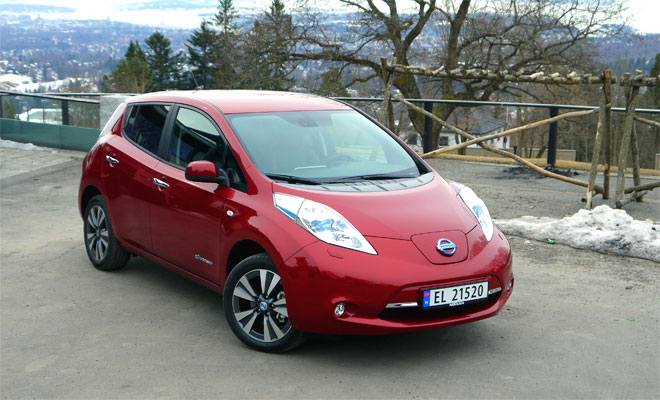by Lem Bingley 
Since driving a prototype electric Golf last year, I’ve had high hopes about Volkswagen’s arrival in the electric car business. My early foretaste of the upcoming e-Golf was deeply impressive, and the miniaturised e-Up equivalent ought to be equally well sorted.
However, it seems that VW may have failed to notice that it’s not 2011 anymore. Over the past few years, electric car prices have been wafting their way down from the stratosphere. Volkswagen’s pricing for the e-Up, by comparison, seems optimistically airborne.

The e-Up is a five-door electric city car with a range between recharges of up to 93 miles. It’s generously but not luxuriously equipped for an urban runabout, and it has basic on-the-road price of £19,250 (after the £5,000 reduction of the Plug-in Car Grant). That’s enough to buy a modestly specced Golf, by the way.
To spread the e-Up’s hefty cost, VW is offering a £199-per-month, 3-year finance deal, which doesn’t sound too painful until you notice that it requires a deposit of just over £7,000. That’s quite a chunk of cash.

The e-Up’s 18.7kWh battery is the stumbling block of course – with lithium-ion cells remaining stubbornly expensive it’s not really possible to make an EV that’s truly cheap. But a little browsing among Volkswagen contract hire options reveals exactly how much a buyer might save by opting for petrol power instead of batteries. The mid-range VW Move Up model is available for £99 per month after a deposit of less than £2,750, for example. But then that model of Up does retail for only £9,425, or less than half the price of the e-Up.
Yes, the e-Up is better equipped and will be substantially cheaper to run than a conventional alternative. But no amount of fuel saving is going to stop the electric Up from giving your wallet a painful hammering.
Even those fully braced to pay extra for the attractions of battery-powered motoring will probably find more tempting options elsewhere.

Renault won’t sell you a Zoe electric car outright, but its policy of renting the battery does make its urban EV cost less upfront. Owners must pay at least £70 per month to lease the battery, and the rest of the car costs from £13,995 after the plug-in grant. I found a dealer offering four-year financing, taking a deposit of just under £2,900 followed by 48 payments of £249. Over the first three years, that would tot up to about £3,000 less than running the e-Up over the same period – and the Renault is a size up from the Up.
And increasing in size again there’s the British-built Nissan Leaf. When the Leaf launched in 2011 there was one trim level that cost £25,990 after the government rebate. Today you can buy the equivalent specification – a Leaf in Acenta trim – for £23,490.

A stripped down Visia edition of the Leaf costs from £20,990. And if you’re happy to sign up for £70-per-month battery leasing, you can lop £5,000 from those asking prices. One chain of Nissan dealers is advertising a Leaf personal contract with £3,650 deposit and 36 monthly payments of £169, including battery rental. Over the three years, that works out more than £4,000 cheaper than the e-Up. And the Leaf is a substantially larger car, with an improved range of up to 124 miles.
At the other end of the spectrum, it’s also worth considering the electric option that now sits above the e-Up in outlay terms. The new BMW i3 electric car is currently priced from £25,680.

BMW’s three-year deals for the i3 start at £369 per month with around £3,000 down. That works out about £2,000 more than the e-Up over a three-year period, as you might expect for a bigger car, with more impressive technical credentials and a distinctly more upmarket image. But it’s sobering to reflect that the tiny e-Up is closer in cost to the i3 than it is to the Zoe or Leaf.
Against this competitive backdrop, the e-Up is going to need to be mightily impressive in the metal to notch up noticeable sales this coming year.
VW aims high with its e-Up pricing
21 December 2013
Read more about: BMWi electric cars Nissan Renault small cars Volkswagen



